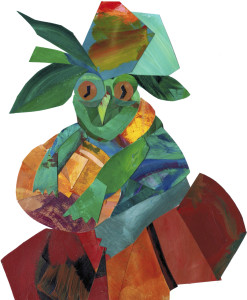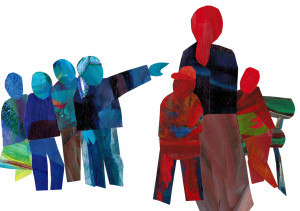8:27 AM
Ordinarily, I don’t do mornings. Certainly not before the crack of nine. I’ve always slept in whenever possible, but now that my tutoring schedule sometimes runs to 10 pm, I have an excuse. Unfortunately, one of my other idiosyncrasies is that I have trouble managing my possessions. In other words, I lose stuff. At the gym, I pay for the quarter lockers. It’s cost effective when considered against the price of continually replacing my own padlocks.
So, yesterday I left my iPad in a classroom on the island of Alameda, where I was teaching an after school debate class. Doing debate with 4th- and 5th-graders is one of life’s great pleasures, something, I imagine, like riding a temperamental horse: exhilarating, perilous. As elementary school students, they still live in a world where principles can be relied on. Promises need to be kept, offenses require precise apologies: “It’s not that you bumped me and I fell. I’m mad because it really hurt and you laughed at me.” After elementary school, we continue to yearn for a morally coherent world, but middle school cures most of us of the hope for justice.
For debate workshops, my iPad is crucial. That’s because I have a timer app that goes toc-toc-toc as you spin the second-hand to set the dial. Classes in the late afternoon, when kids have been studying all day, can easily fall into rambunctious turmoil. In this case, though, as owner of the iPad, I hold the reins. The desire to touch the timer, I assure you, runs as deep as the longing for a just world, and I have the power to grant fulfillment or take it away. The kids know that mishandling my tech would bring consequences that defy imagination–in computer-savvy Alameda it would be like mishandling a statue of the Virgin at a Catholic School–so I can trust them to follow my rules with the device.
With that control in place, the event pretty much runs itself. Once we have a resolution to argue, I choose the judges. Almost everyone wants to be a judge–even the most impish child has a sober judicial side just waiting to come out–so I assign the role through a random drawing. Then, by consensus if possible, we organize the teams. It’s a common pedagogical practice to start debaters off with fairy tales, replete as they are with ethical conundrums. The story I had planned to do, “Rumplestiltskin,” turned out to be one they had already hashed over in their regular class.
And so we moved on the Frog Prince: Undervalued Dreamboat? Innocent Victim? Slimy Interloper? Passionate arguments emerged. The Princess tried to break her word after the Frog Prince risked his life to rescue the princess’s golden ball. What is a grown man doing, even in frog form, asking a young girl to take him home to her bed? (She’s obviously a child: she’s playing with a ball.) And what do we really know about this prince and the “castle” that he’s promising to his would-be bride? What if the castle is really a dump?
During in the breaks between the four rounds, one of the three judges also took on a coaching role, smoothly incorporating the technical terms we had just learned: “I want to see more pathos. Really show me your emotions. As far as logos, make sure your arguments connect.” A second judge, a wag who likes to raise his hand just to get called on so he can announce that he has nothing to say, transformed himself into a gracious host. If the timer ran out on a speaker, he stretched out his arm, asking, “Would you like to complete your statement?”
Since this was an intramural event, I was happy to allow the students make these small adjustments to the usual proceedings, adjustments that encouraged full and satisfying participation. At some point one of the debaters respectfully pushed back against Judge One’s torrent of advice. “We appreciate what you’re saying, but we’re up here doing the best we can.” On the other hand, the debaters also took the initiative to ask for a bit of feedback from the third, hitherto silent judge.
After arguments closed, the judges went to the whiteboard and drew up a chart with the scores for the two teams (0-4 points for each of 5 categories). Then the kids discussed the results among themselves, staying on topic for a full 15 minutes, without any prompting. In my education as a teacher, I was taught that my role is to facilitate “negotiation of meaning,” so I find it gratifying when such negotiations catch fire.
With the quarter hour we had left in the session, we tried a form of debate devised by the students. One student stood at the back of the room and one at the front, trying to lure other students to their side. We settled on a simple topic: red vs. blue. (In many schools, where Norcal and Socal loyalties run red and blue respectively, this could be a volatile, even taboo subject, but in a well-to-do area like Alameda, the preferences are arbitrary.)
The red side, I have to say, suffered from too much reliance on logical argument: People say that water is blue or the sky is blue, but that’s just a trick of the light. Blue rode to success on a wave of pathos: The sky may not really be blue, but blue is what we see.
I lent my support for the red side, but the blues rejected my appeal to authority–A billion Chinese can’t be wrong–and shot back with an irrelevant yet devastating counter-assertion: “Your shirt is blue.” Despite blue’s intimidating numbers, the controversy raged on until it was time to go. Then the students, helpfully cleaning up the class materials, came at me with wadded piles of paper, which I stuffed into my bag. We locked up the classroom, and I was 15 miles away before I realized I’d left my iPad behind.
Today, therefore, I have hauled myself back to Alameda, getting to the school before instruction starts to retrieve my mysterious object of desire, which I will need for a 1 pm debate class with another group. And now here I am, negotiating the meaning of morning, that beautiful time I seldom see, where the people who aren’t rushing to their jobs walk around with their minds in loose focus, taking in whatever comes.
I’m at a coffee shop, and the barista is telling a red-headed customer with a flowered purse, a diamond-patterned shirt and a camouflaged jacket that he is hoping to get back to nature.
“That’s so good,” she replies, chewing up a few leisurely bites of pastry before adding, “It’s the most important thing.”
“Actually,” he says, “I’m growing a few things in my drainpipe.”
While he pours in the milk for her latte, she rips open two sugar packets and shakes them in at the same time. “I just love everyone here,” she announces to the staff, before she grabs her cup and heads off for work. For this moment only–do not expect any more out of me–I love mornings, as I have always loved the application of well-intended words.

